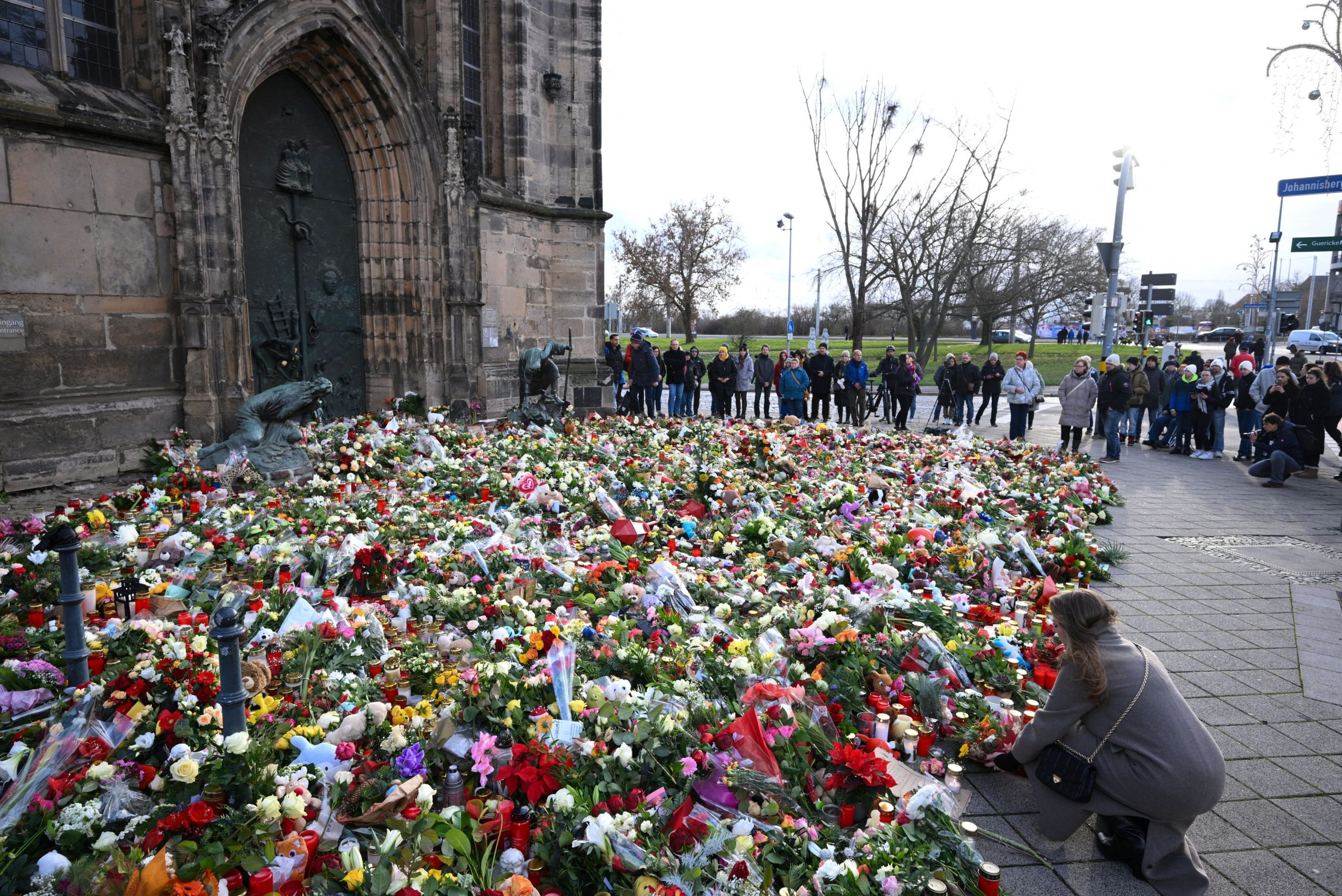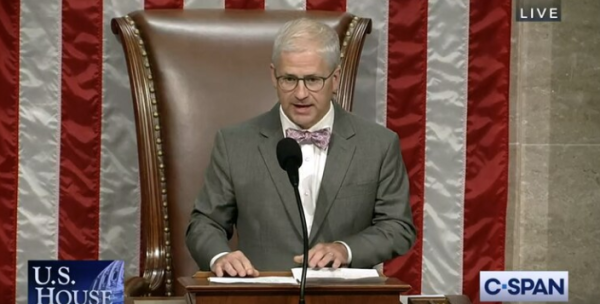
A50-year-old doctor from Saudi Arabia drove a car into a Christmas market, killing five people and injuring many others. Some of the severely injured are fighting for their lives. Germany is in shock—yet again, one might say.
The massacre in Magdeburg marks the third attack in a short period: following the Islamist attack in Solingen and the deadly knife assault on a police officer in Mannheim, this incident adds to the brutality. Reports of knife attacks have almost become routine. The wave of public violence has shattered Germany’s former sense of ease.
The Magdeburg attack painfully echoes the assault on Berlin’s Breitscheidplatz eight years ago. Back then, too, a man drove a vehicle through a Christmas market. Back then also, the deadly attack occurred at the height of the pre-Christmas season—a time traditionally associated with peace, joy, and reflection.
The new violence leaves the nation grappling with uncertainty. The fact that the Magdeburg attacker was not an Islamist, unlike the perpetrators in Solingen, Mannheim, or Berlin, further heightens the anxiety. Security agencies appear overwhelmed, lacking clear criteria for identifying threats. The Magdeburg attack is a catastrophe for an already unsettled country.
“After 25 years in this field, you think nothing could surprise you anymore,” writes terrorism expert Peter R. Neumann, who teaches in London, on X. “But a 50-year-old Saudi ex-Muslim, living in East Germany, loving the AfD, and wanting to punish Germany for its tolerance toward Islamists—that was definitely not on my radar.” The German expert, who advised the CDU during elections three years ago, captures the complexity of the attacker’s biography. The information currently available paints the picture of an individual who defies conventional categorizations. Analysts and commentators alike find it challenging to pin down his motives.
The Magdeburg massacre comes at a highly precarious time: in just two months, Germany will hold snap federal elections. The government is under immense pressure, with polls pointing to a likely victory for the conservative CDU. Meanwhile, the far-right Alternative for Germany (AfD) is surging in popularity. Polls indicate that one in five voters would cast their ballot for the party. Predictably, the AfD has seized the tragedy to score political points. “Violence, terror, and fear have become part of daily life due to failed immigration policies,” declared a senior party representative.
Simplistic blame and sweeping explanations are hallmarks of populists. Germany’s far-right radicals find strong allies abroad, not at least in the United States. “Only the AfD can save Germany,” wrote Elon Musk on X, who has recently advanced to become a top advisor to Donald Trump. In the same context, Musk called Germany’s chancellor an “incompetent fool” and demanded his immediate resignation—a provocation unlikely to improve German-American relations.
The AfD itself has not gone as far as Musk.The party has called for demonstrations in Magdeburg and is demanding the resignation of the state’s interior minister. The AfD continues to level sweeping accusations that the security authorities failed their duties. Whether the attack could have been prevented through more aggressive deportation policies is unclear and will dominate investigations in the coming days. Those who offer quick and simplistic solutions in such a complex situation reveal that their goal is not truth but electioneering.
Meanwhile, more details about the Magdeburg attacker are coming to light. Taleb A., as he is identified in German media, openly shared his radical views online. In a 2019 interview with the Frankfurter Allgemeine Zeitung, he described himself as “the most aggressive critic of Islam in history.” Over time, his hatred of Islam morphed into deep resentment toward Germany, the country that had granted him asylum.
The attacker appeared driven by a twisted desire to inflict harm on his adopted homeland—a political perversion of the highest order. His writings reveal not only contempt for Islam but also for Germany’s liberal and open society, exposing the deeply distorted ideology behind his actions. This is a form of extremism that cannot be neatly categorized as either right-wing or religious.
In August, Taleb A. posted explicit threats of violence on the platform X: “If Germany wants war, we will give them war. If Germany wants to kill us, we will slaughter them, die, or go to prison with pride,” he wrote in Arabic. Saudi Arabia, evidently recognizing the danger, had warned German authorities about him. Why the police failed to act in time is one of the critical questions that will dominate the discussions in the days ahead.
Dr. Ronald Meinardus is a Senior Research Fellow at the Hellenic Foundation for European and Foreign Policy (ELIAMEP).
Source: tovima.com
Latest News

Airbnb: Greece’s Short-Term Rentals Dip in March Amid Easter Shift
Data from analytics firm AirDNA shows that average occupancy for short-term rentals dropped to 45% in March, down from 49% the same month last year.

Easter Week in Greece: Holy Friday in Orthodoxy Today
At the Vespers service on Friday evening the image of Christ is removed from the Cross and wrapped in a white cloth

Meloni and Trump Meet in Washington, Vow to Strengthen Western Ties
“I am 100% sure there will be no problems reaching a deal on tariffs with the EU—none whatsoever,” Trump stressed.

ECB Cuts Interest Rates by 25 Basis Points in Expected Move
The ECB’s Governing Council opted to lower the deposit facility rate—the benchmark for signaling monetary policy direction—citing an updated assessment of inflation prospects, the dynamics of underlying inflation, and the strength of monetary policy transmission.

Current Account Deficit Fell by €573.2ml Feb. 2025: BoG
The improvement of Greece’s current account was mainly attributed to a more robust balance of goods and, to a lesser extent, an improved primary income account

Hellenic Food Authority Issues Food Safety Tips for Easter
Food safety tips on how to make sure your lamb has been properly inspected and your eggs stay fresh.

Greek Kiwifruit Exports Smash 200,000-Ton Mark, Setting New Record
According to data by the Association of Greek Fruit, Vegetable and Juice Exporters, Incofruit Hellas, between September 1, 2024, and April 17, 2025, kiwifruit exports increased by 14.2%.

Easter Tourism Boom: Greece Sees 18.3% Surge in Hotel Bookings
Among foreign markets, Israel has emerged as the biggest growth driver, with hotel bookings more than doubling—up 178.5% year-on-year.

Greece to Launch Fast-Track Tender for Offshore Hydrocarbon Exploration
Last week, Papastavrou signed the acceptance of interest for the two Cretan blocks, while similar decisions regarding the two Ionian Sea blocks were signed by his predecessor

American-Hellenic Chamber of Commerce to Open Washington D.C. Branch
AmCham's new office aims aims to deepen U.S.-Greece economic ties and promote investment and innovation between the two countries







![Πλημμύρες: Σημειώθηκαν σε επίπεδα ρεκόρ στην Ευρώπη το 2024 [γράφημα]](https://www.ot.gr/wp-content/uploads/2025/04/FLOOD_HUNGRY-90x90.jpg)




![Airbnb: Πτωτικά κινήθηκε η ζήτηση τον Μάρτιο – Τι δείχνουν τα στοιχεία [γράφημα]](https://www.ot.gr/wp-content/uploads/2024/07/airbnb-gba8e58468_1280-1-90x90.jpg)

























![Airbnb: Πτωτικά κινήθηκε η ζήτηση τον Μάρτιο – Τι δείχνουν τα στοιχεία [γράφημα]](https://www.ot.gr/wp-content/uploads/2024/07/airbnb-gba8e58468_1280-1-600x500.jpg)


 Αριθμός Πιστοποίησης
Αριθμός Πιστοποίησης